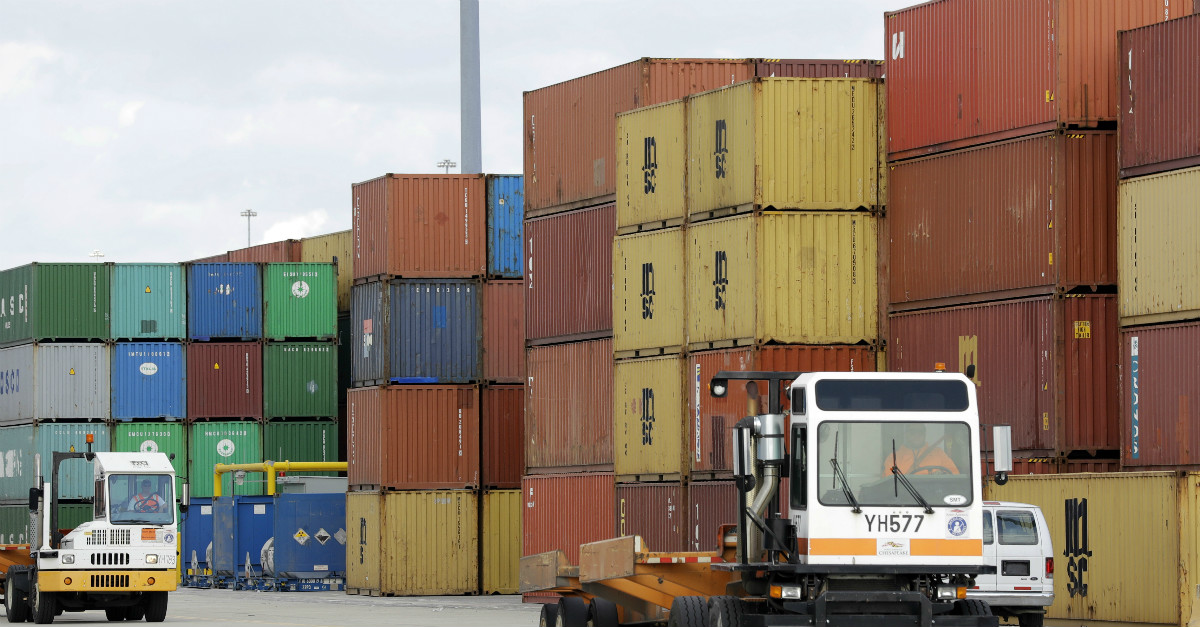On Monday, President Donald Trump finally pulled the plug on the Trans-Pacific Partnership, which all but died after Trump was elected anyway. The massive 12-nation trade deal had generated strong bipartisan opposition and ending it was a key part of Trump’s campaign platform.
Videos by Rare
Withdrawing from TPP was applauded by Rust Belt senators who saw it as a threat to American jobs. But some in Trump’s own party are not happy with his decision. Senator John McCain released a statement criticizing the U.S. withdrawal from TPP. “[It] will send a troubling signal of American disengagement in the Asia-Pacific region at a time we can least afford it,” McCain said.
I support free trade. I believe it is beneficial for both the United States and the world. Trade raises living standards and increases prosperity. The Trans-Pacific Partnership on the whole was probably good for America.
But formally withdrawing from it is a blessing in disguise for the cause of free trade.
The TPP had become an example of how not to negotiate a trade deal. For starters, 12 nations is just too many. Those countries have differing interests and circumstances, and reconciling them was a huge bureaucratic nightmare.
Many of the countries involved had fundamentally different values. For example, free-market tigers such as Singapore, New Zealand, and Australia were seated at the same table as governments that don’t like capitalism such as communist Vietnam and Brunei.
RELATED: As the Trans-Pacific Partnership dies, Washington feels the effects of Trumpism
The result was an agreement that seemed to be more than just a trade deal. TPP was in fact a building block in a potential alliance to deter China, something John McCain more or less admitted in his statement bemoaning its demise. The deal was also sold as the “most progressive trade deal in history” and included provisions on everything from a minimum wage to environmental standards. It was designed to pander to American progressives, even if they ultimately rejected it.
Because the TPP was more than just a trade deal, it drew unexpected opponents. Provisions on intellectual property were opposed by the Electronic Frontier Foundation. Other provisions on privacy drew the opposition of civil libertarians. The only purpose of a trade deal should be to expand market access for goods and services. Trying to use one to engineer other countries’ economic policy is a bad idea and opens the door to further opposition.
Which brings us to the biggest reason why the TPP’s death is a blessing in disguise: free traders have forgotten how to make the case for free trade. Free trade has been accepted as gospel by the American political class since the 1930s and not enough effort has been made selling it to ordinary Americans. We have not educated the public on why tariffs (and other trade barriers) are bad policy, the sheer number of jobs that are tied to international trade, and how it improves living standards.
RELATED: Donald Trump is right to take a more aggressive stance against China
We have also forgotten that our country is in an international economic competition with other countries. We need to lower our corporate tax rate, improve education and workforce development, invest smartly in infrastructure, and cut regulations and red tape. Much of this will help workers who have lost out due to foreign competition.
The end of the TPP could be a good thing if it forces changes to how international trade deals are negotiated. It should also make American lawmakers take a hard look at how uncompetitive America’s economy is compared to much of the world and address it accordingly.



